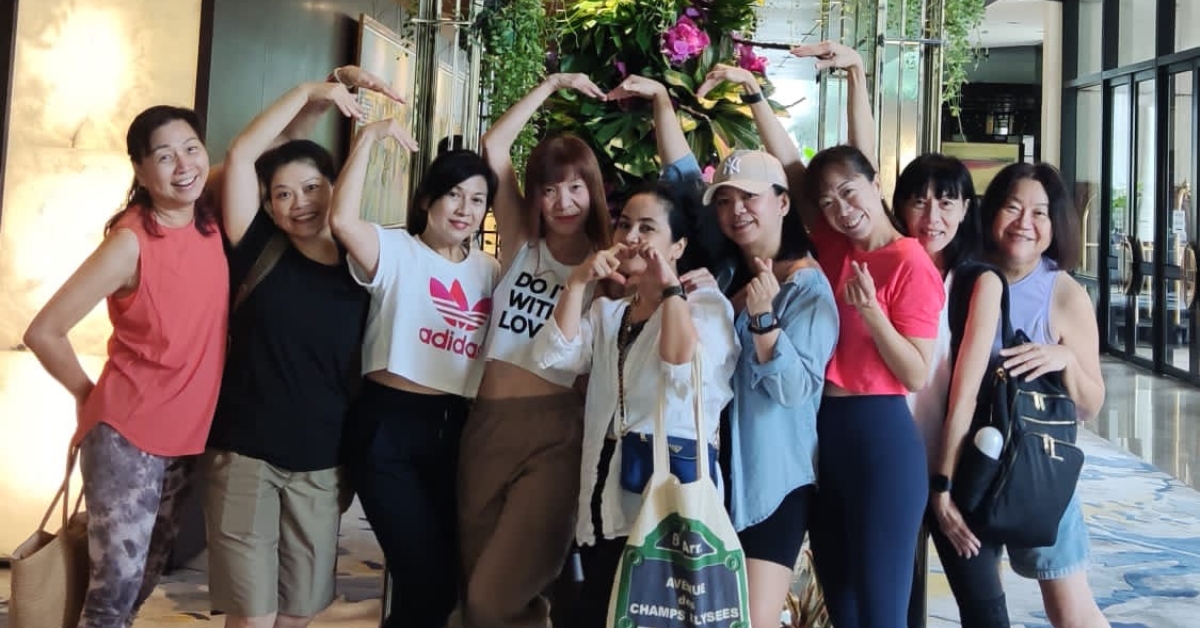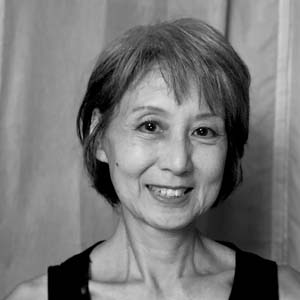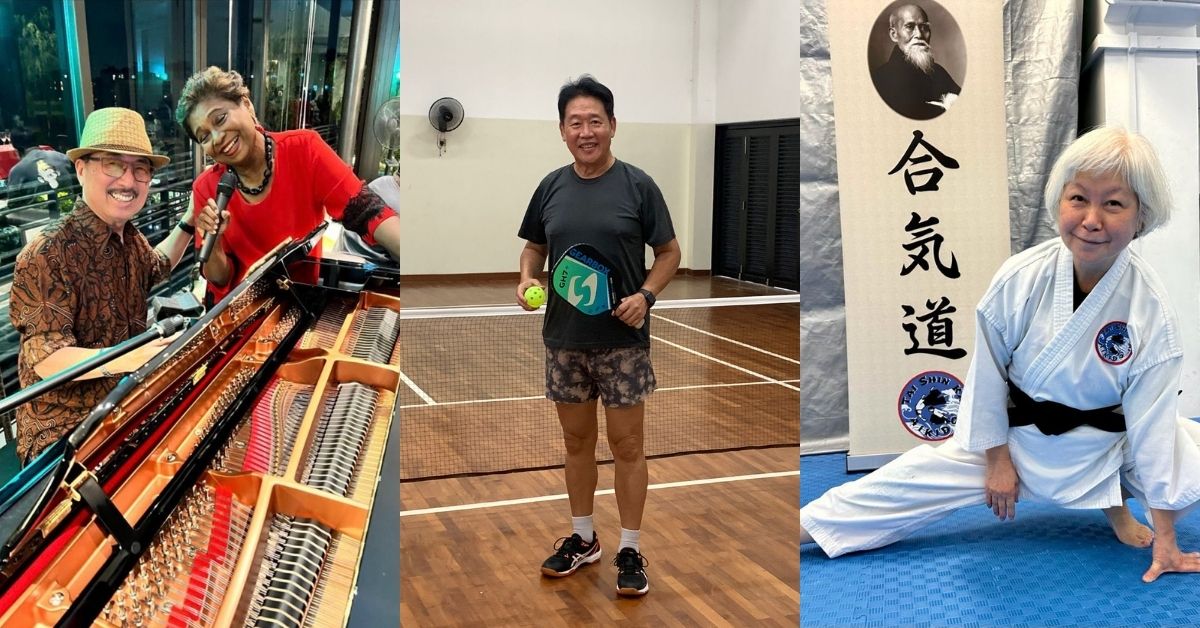You’ve heard of a nest egg: Money set aside for future use, usually retirement. Perhaps you’re anticipating, or already enjoying, the freedom of spending it on your dreams in your silver years.
But those dreams take more than just money to happen, don’t they?
After all, how easy is it to enjoy your retirement or nest egg if you are ill or in pain, or no longer feel like a vibrant human being, or are bereft of family and friends?
Surely a nest egg is part of a larger account for wellbeing that feeds one’s overall happiness throughout life?
Whether for the future or in the present, this account needs more and different ‘eggs’ apart from the financial.
For most people, thinking of happiness this way is a novel idea.
Among those willing to dip into the idea, some common notions for what they would want in a happiness account came through.
Physical, mental and emotional health ranked high.
“I never used to think about this, but as I get older, health is very important. I only have one body,” said Alicia Yeo, 65, self-employed. “If I don’t take care of it, nobody will.
Breast cancer survivor, Marie Chua, 50, a single mom, echoes similar desires not to burden loved ones. “A strong body, to be independent, no falling down, no wheelchair.”
And a “strong mind,” she added. Like having the courage of her convictions to go with her heart and not be swayed by outside circumstances, such as the turmoil she went through with her cancer diagnosis and subsequent divorce.
“Happiness is knowing what is most important to you and having access to it,” said Karen. Much of this changes over time.
For a five-year-old, happiness is sprinkles on ice-cream, or a bedtime story. For those past 50, those desires change. Few things teach that better than the trials of life.
“When difficult things happen,” said Karen, “(it is to) know it is difficult now, and not always. That you are able to go through it and get to the other side. And there will be help, and you are willing to get that help.”
In addition, “I didn’t think of it so much before, but now I see how really very important friends and family are. I think 2020 has taught us how important connections are — building deep, authentic connections, making a real effort to sustain these relationships.
“There are many alternatives to plan our retirement. For married men/women, it’s also greatly dependent on how we bring up our children,” said Hewlee, looking at family relationships.
Similarly, family and children anchor Charles’ happiness account. “Warmth and friendship, and enjoyment of times together with wife, children, and like-minded friends are very important.”
“Family is number one” also to retiree Susan Lee, 65. “And friends and social connections…and your own self. You have to be happy.”
Self. We need a good relationship with our self too. Life’s darkest days are often where we discover priorities for our self and our happiness — and the value of that happiness.
Alicia’s most important lesson in happiness came from a difficult marriage and divorce. They taught her to put herself first.
“I think, at my age, I am supposed to make myself happy,” said Alicia.
“Why I dragged on so long in the marriage was because the children were young. My daughter pushed me to think about myself.
She told me, ‘You always think about others’ happiness, but you never put yourself first.’
“My daughters encouraged me to get the divorce. That was when my happiness started.
“If I am miserable and sad, how will that affect my children?
Learning how to be stronger and happier rubbed off on her daughters. “They have become very independent, self-reliant and responsible.”
“We should add one more (to the happiness account),” added Hewlee. “Spiritual.”
In short, the common threads in these conversations were:
Much of the composition of happiness is subjective, dynamic, unique to the individual.
And no interviewee rated their happiness much higher than 70% — indicating that all have the capacity to be happier.
Where can people invest in to get more happiness out of life?
Science can point the way.
The Harvard Study of Adult Development is the world’s longest running study on human happiness.
It began in 1938. It’s now in its 85th year.
Professors Robert Waldinger and Marc Schulz are its current directors, and co-authors of The Good Life: Lessons From The World’s Longest Scientific Study of Happiness.
According to this study, happiness is largely predicted by the frequency and quality of our contact with people.
Authentic connections actually count more than nutrition, exercise, and even sleep — practices already known to benefit mental and physical health and longevity.
Said Prof Waldinger, Professor of Psychiatry at Harvard Medical School, Zen priest and meditation teacher, “When we don’t keep current with the really important people in our lives, perfectly good relationships can wither away from neglect.
The most compelling research is coming from studying loneliness, according to Prof Schulz, Professor of Psychology and Director of Data Science at Bryn Mawr College in Pennsylvania, and a practicing therapist.
“The incredible links with the amount of time people spend on this earth, and their relationships, are of the same magnitude as the things we commonly think about as serious health risks, like smoking and obesity.
From his 80-year vantage point, Hewlee agrees. “We depend on family members and common friends to keep us mentally sound. Avoid ‘toxic’ or very negative people. Connecting with them drains our happiness or emotional account. So, nothing left in times of need for ourselves!”
Two key takeaways come from this oldest ongoing study of humanity.
First, “Take care of your body like you are going to need it for a hundred years,” said Prof Waldinger.
“And invest in relationships — it’s the best payoff you’ll get throughout your life.”
Whether shy or extroverted, everybody needs one or two securely attached relationships where you feel like ‘someone will be there for me if I’m really in trouble’.
Yet the silver years are a time when old social networks crumble through distance or death. So, it’s vital to keep making new friends. Research reveals how valuable this skill is.
It’s one we’ve been practicing since we were toddlers, and our retirement years give more time to continue doing that. We just need to remain open and curious to learning new skills and be interested in people.
It’s been said that happiness is a journey. Consciously or unconsciously, we’ve all been acquiring ideas and skills along our journey that may work for our happiness accounts, or not.
A nest egg sits in a nest that is the goal of what people seek — a foundation of strong and healthy relationships that make us feel seen, heard, valued and supported, and from where we can be our happiest and best selves.
The devil is in the details. This nest is a collection of results from the many little choices we make every day, from an acknowledging smile to a deliveryman, a chat with someone you deeply care about, the conversations you have with yourself in your head.
“It’s important to be aware of emotional life events which naturally put people into negative states of mind,” said Charles. “I’m interested in strategies…routines to help you get away from the unhappiness and move into a happier state.”
That’s a conversation that can take one down many rabbit holes.
For now, is there someone who’s been on your mind but you’ve not spoken to for a while? Call this person. How much easier does it get to add credit to your happiness account?
Meanwhile, watch this space for more on happiness.







